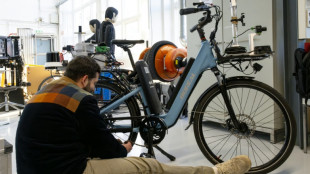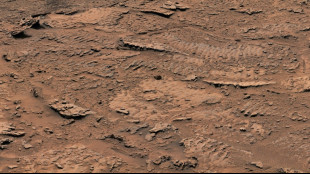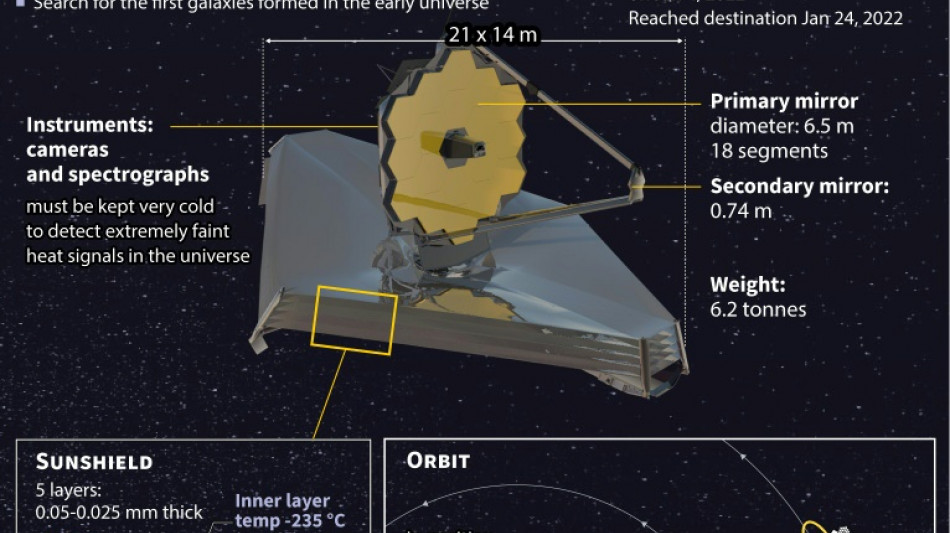
-
 Between laughs and 'disaster', Trump divides Davos
Between laughs and 'disaster', Trump divides Davos
-
Hundreds of people protest ahead of Swiss Davos meeting

-
 US falling behind on wind power, think tank warns
US falling behind on wind power, think tank warns
-
US news giant CNN eyes 200 job cuts, streaming overhaul

-
 Rubio chooses Central America for first trip amid Panama Canal pressure
Rubio chooses Central America for first trip amid Panama Canal pressure
-
Wall Street's AI-fuelled rally falters, oil slumps

-
 Trump tells Davos elites: produce in US or pay tariffs
Trump tells Davos elites: produce in US or pay tariffs
-
Progressive politics and nepo 'babies': five Oscar takeaways

-
 American Airlines shares fall on lackluster 2025 profit outlook
American Airlines shares fall on lackluster 2025 profit outlook
-
France to introduce new sex education guidelines in schools

-
 Wall Street's AI-fuelled rally falters
Wall Street's AI-fuelled rally falters
-
Drinking water in many French cities contaminated: study

-
 After Musk gesture, activists project 'Heil' on Tesla plant
After Musk gesture, activists project 'Heil' on Tesla plant
-
ICC prosecutor seeks arrest of Taliban leaders over persecution of women

-
 Syria's economy reborn after being freed from Assad
Syria's economy reborn after being freed from Assad
-
Shoppers unaware as Roman tower lurks under French supermarket
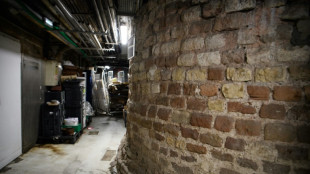
-
 Stocks mainly rise after Wall Street's AI-fuelled rally
Stocks mainly rise after Wall Street's AI-fuelled rally
-
Singer Chris Brown sues Warner Bros for $500 mn over documentary

-
 J-pop star Nakai to retire after sexual misconduct allegations
J-pop star Nakai to retire after sexual misconduct allegations
-
Leaky, crowded and hot: Louvre boss slams her own museum

-
 WWF blasts Sweden, Finland over logging practices
WWF blasts Sweden, Finland over logging practices
-
How things stand in China-US trade tensions with Trump 2.0

-
 Most Asian markets rise after Wall Street's AI-fuelled rally
Most Asian markets rise after Wall Street's AI-fuelled rally
-
Fire-hit Hollywood awaits Oscar nominees, with 'Emilia Perez' in front
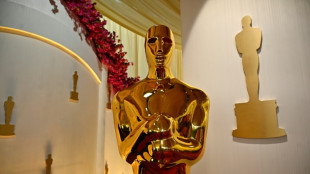
-
 New rider in town: Somalia's first woman equestrian turns heads
New rider in town: Somalia's first woman equestrian turns heads
-
Most Asian markets extend AI-fuelled rally

-
 Bangladesh student revolutionaries' dreams dented by joblessness
Bangladesh student revolutionaries' dreams dented by joblessness
-
Larry Ellison, tech's original maverick, makes Trump era return

-
 Political crisis hits South Korea growth: central bank
Political crisis hits South Korea growth: central bank
-
Photonis Launches Two Market-Leading Solutions to Advance Single Photon Detection and Imaging Applications
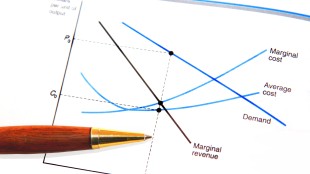
-
 Les Paul owned by guitar god Jeff Beck auctioned for over £1 mn
Les Paul owned by guitar god Jeff Beck auctioned for over £1 mn
-
Musk bashes Trump-backed AI mega project

-
 Does China control the Panama Canal, as Trump claims?
Does China control the Panama Canal, as Trump claims?
-
Yemen's Huthis say freed detained ship's crew after Gaza truce

-
 Mel B, Trump and Milei: What happened at Davos Wednesday
Mel B, Trump and Milei: What happened at Davos Wednesday
-
Argentina's Milei says would leave Mercosur for US trade deal

-
 Fashion world 'afraid' of Trump, says Van Beirendonck
Fashion world 'afraid' of Trump, says Van Beirendonck
-
P&G sees China improvement but consumers 'still struggling'

-
 Stock markets mostly higher as they track Trump plans, earnings
Stock markets mostly higher as they track Trump plans, earnings
-
Anti-Semitic acts at 'historic' highs in France despite 2024 fall: council

-
 Trump's meme coin venture sparks backlash
Trump's meme coin venture sparks backlash
-
Global green energy push likely to continue despite Trump climate retreat: UN

-
 Prince Harry settles lawsuit against Murdoch's UK tabloids
Prince Harry settles lawsuit against Murdoch's UK tabloids
-
Stock markets diverge tracking Trump plans

-
 Sudan 'political' banknote switch causes cash crunch
Sudan 'political' banknote switch causes cash crunch
-
Masa Son, Trump's Japanese buddy with the Midas Touch

-
 Borussia Dortmund sack coach Nuri Sahin after Champions League setback
Borussia Dortmund sack coach Nuri Sahin after Champions League setback
-
'Love for humanity': Low-crime Japan's unpaid parole officers

-
 Brazil saw 79% jump in area burned by fires in 2024: monitor
Brazil saw 79% jump in area burned by fires in 2024: monitor
-
No home, no insurance: The double hit from Los Angeles fires


Webb telescope's first full color, scientific images coming in July
Get ready for a summer blockbuster.
The James Webb Space Telescope will produce "spectacular color images" of the cosmos in mid-July -- its first observations dedicated to its mission of scientific discovery, an astronomer overseeing the project said Monday.
The successor to Hubble has spent the last five months aligning its instruments in preparation for the big reveal, with scientists deliberately remaining coy about where the cameras will be pointed.
"We'd really like it to be a surprise," Klaus Pontoppidan, a scientist at the Space Telescope Science Institute in Baltimore told reporters, adding that the secrecy was partly due to the first targets not yet being finalized.
NASA and its partners the European Space Agency (ESA) and Canadian Space Agency (CSA) formed a committee to create a ranked list of objects, which they now intend to work through.
Webb's team has already released a series of star field images taken for calibration purposes, but the new photographs will be of astrophysics targets, key to deepening humankind's understanding of the universe, said Pontoppidan.
These images will actually be shot in infrared, and then colorized for public consumption.
Visible and ultraviolet light emitted by the very first luminous objects has been stretched by the universe's expansion, and arrives today in the form of infrared, which Webb is equipped to detect with unprecedented clarity -- giving it an unprecedented view of the first stars and galaxies that formed 13.5 billion years ago.
Webb, which is expected to cost NASA nearly $10 billion, is among the most expensive scientific platforms ever built, comparable to the Large Hadron Collider at CERN, and its predecessor telescope, Hubble.
Its mission also includes the study of distant planets, known as exoplanets, to determine their origin, evolution and habitability.
X.Cheung--CPN

